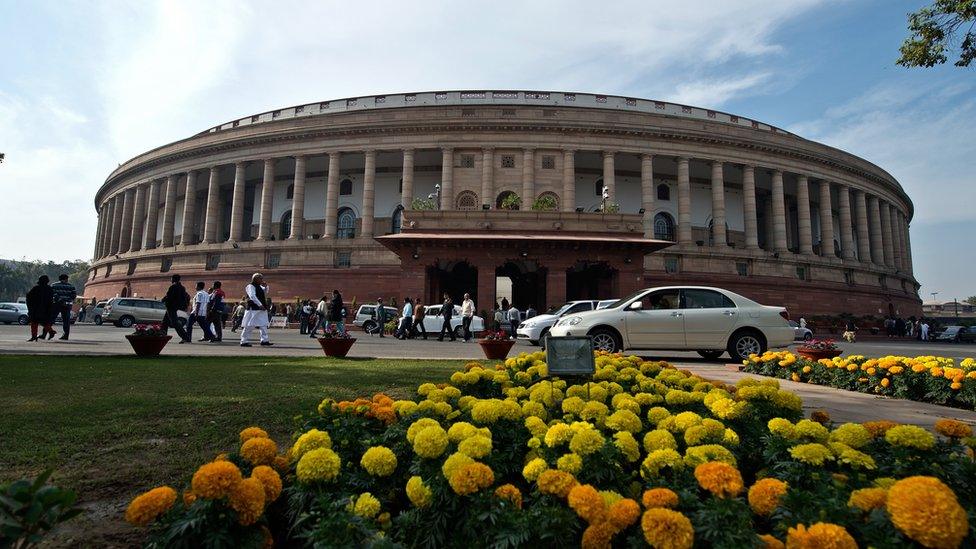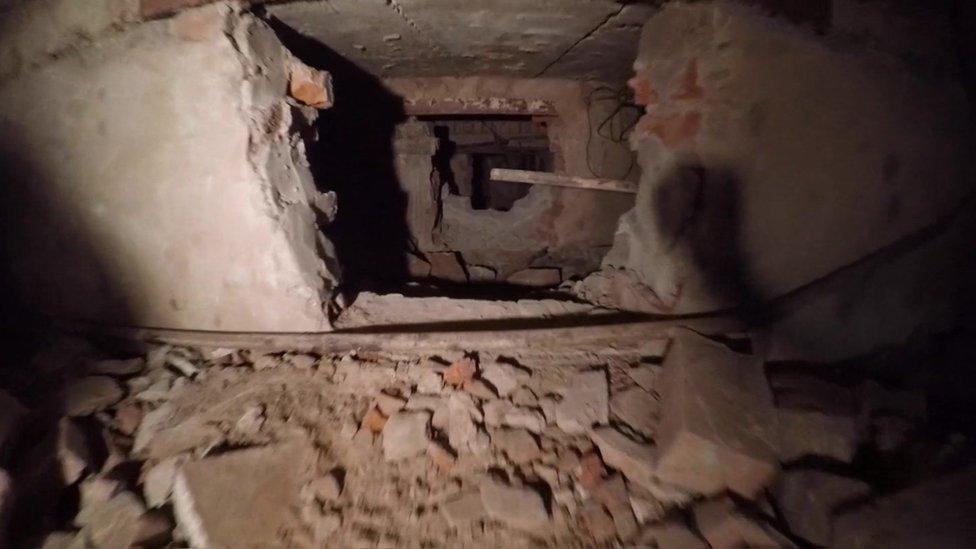Tata to build new India parliament
- Published

The existing building is nearly a century old
One of India's biggest conglomerates has won the bid to build the country's new parliament building.
Tata Projects will construct the $117m (£90m) building in the heart of the national capital, Delhi.
It will replace the existing colonial-era complex and is expected to be completed by 2022, when India celebrates 75 years of independence.
Critics say the government should be spending the money on controlling the coronavirus pandemic.
India now has more than five million confirmed cases - the world's second-highest tally. The country has also reported more than 80,000 deaths from the virus so far.
But the government says a new parliament building is needed as the current one dates back to the 1920s and shows signs of "distress and over-use".
There has also been an increase in MPs and parliament staff.
The new building, which will be larger than the current one, will have seating for 1,400 MPs, according to the Press Trust of India news agency.
Reports say it will be a three-storey triangular structure.
It is part of a $2.7bn government plan to modernise old colonial government buildings in Delhi.
The project has been embroiled in controversy, with critics expressing concerns over the aesthetics and costs of the project.
However, the demand for a new parliament building dates back to nearly a decade with successive speakers of the parliament supporting the need for a new parliament building., external
British architect Herbert Baker built the existing circular parliament building with a large domed hall and finished it in 1927.
Historian Dinyar Patel has written that the building was mocked, external after if it was completed.
He says Philip Sassoon, a British socialite and political figure, once said that the building "looks like a gasometer - which it is!".
Even Baker acknowledged his building's defects.
"The dome that rose above the central hall, he admitted, was like a "jack-in-the-box" that struggled unsuccessfully to appear above the Council House's circular cornice," Dr Patel wrote.
- Published26 March 2016

- Published7 December 2015
